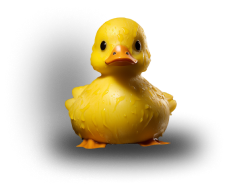
Data for AI training is often taken from the Internet, including web scraping, which can lead to the use of copyrighted material or database rights. Failure to comply with IP requirements may result in legal consequences.
IP belongs to the category of property rights that arise from the results of intellectual activity in the industrial, scientific, literary and artistic spheres. Intellectual property includes copyrights, trademarks, patents, utility models, industrial designs, geographical indications and trade names. Copyright protects literary and artistic works, music and text, as well as other forms of creativity, but traditionally does not include voice or performance style. Database rights protect data collections from unauthorized use. In the context of AI, IP refers to the importance of using legally obtained data for learning and creating new content to avoid infringement of these rights.
Generative AI tools that create text, images, or music can infringe IP rights if trained on protected content. It is important that AI training takes place with permitted data to avoid direct IP infringements. It is often pointed out that the fair use doctrine may apply to AI, but this does not replace the need to obtain appropriate licenses.
The problem becomes more complex with large language models that can generalize and create copyright-like content. Comparability of the result with the original work may indicate copyright infringement. This is especially true when AI creates content similar to famous works or styles, as in the case of The Next Rembrandt.
Consider the case where AI was used to create the song “Heart on My Sleeve”, where the voices of Drake and The Weekend were imitated. The author of this song is the TikTok user Ghostwriter977. Although the soundtrack was original, the voices were recognized as those of famous artists. After becoming popular, the composition caused controversy when Universal Music Group demanded that it be removed from music platforms, claiming copyright infringement. The incident raised questions about the limits of copyright, especially in the context of the use of voice, as traditionally copyright protects music and lyrics, not the voice itself.
This brings us to two key issues in the interaction between AI and copyright. The first concerns whether the works of Drake and The Weekend were used to train AI, and whether that use can be considered legal. The second issue concerns the legitimacy of using a person’s name, voice or likeness without their consent, especially given that voice, like biometric data, is protected by personal data legislation. This is due to the fact that the voice can serve to identify a person and reveal a significant amount of personal information.
Legal liability for IP infringement in the context of AI remains unresolved. The determination of liability often depends on the intended use and market impact. In addition, there are exceptions to “fair dealing”, especially in the use of databases. It allows the use of data for non-commercial, educational or research purposes, but such exceptions do not
These legal recommendations were developed by a lawyer in the field of protection of business interests and intellectual property. For professional legal advice, contact via Telegram: @your_legist.